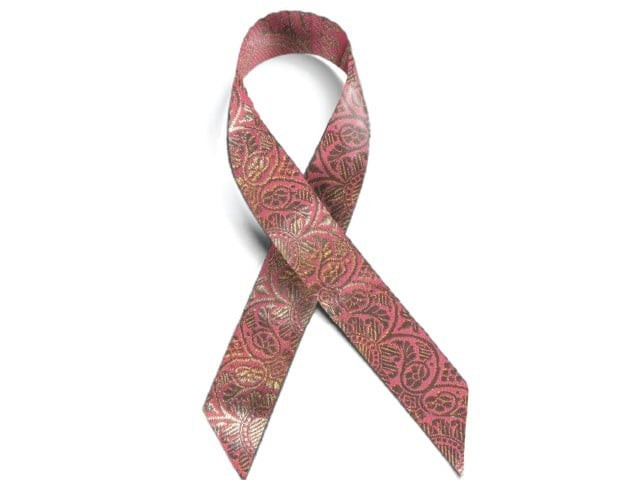Surviving breast cancer: ‘Healthy diet, loved ones’ support help speed up recovery’
‘Women in their 30s and 20s are being diagnosed with breast cancer’.

People need to understand that breast cancer is not a punishment, but a disease that needs to be treated, says Zarina Khatun Syed, a cancer survivor.
The worst way one can react after hearing that someone they know has cancer, she says, is to say things like “Oh God! You have cancer. What a tragedy.”
Syed, now 68, was diagnosed with cancer in 2009. She was the head of the Urdu department at Kinnaird College for Women when she felt a cyst in her left breast. Though, she says, she was aware of the cyst, she could not spare time for a mammography. It wasn’t until Pink Ribbon opened a free mammography camp at the college, that she was diagnosed with breast cancer. Luckily the cancer was detected in its first stage.
Syed went to Chicago for treatment, after her initial biopsy at Shaukat Khanum Memorial Cancer Hospital. She is now a visiting faculty member at Kinnaird College.
Survivors say that a healthy diet, exercise and the support of loved ones help patients recover quickly.
“Support and encouragement helped me [the most] during my recovery,” says Mrs Ashraf, another breast cancer survivor, who has been cancer-free since 1991.
The two women, however, were among the few who were able to get help early.
“Most of the breast cancer patients that come to our walk-in clinic are at an advanced stage of the disease,” says Dr Neelum Siddiqui, head of medical oncology at the Shaukat Khanum Memorial Cancer Hospital.
Siddiqui says more women need to get examined and the doctors need to be able to identify the problem. This requires training at the grass root level, she says.
Most developed countries have national screening programmes for early detection and cancer registries, which collect data for research and treatment of cancer patients. In Pakistan such systems are still missing.
In addition to early detection, experts also emphasise that development of facilities for care of those diagnosed with breast cancer is crucial to fighting the disease.
Oncologists and surgeons say that an increasing number of women in their 30s and 20s are being diagnosed with breast cancer.
Studies show that the average age in Pakistan for a female breast cancer patient is between 45 and 50.
While age is a big risk factor for breast cancer, genetics also plays a role. According to Dr Usman Rasheed of SKMCH Research Centre, females can inherit the BRCA 1 and BRCA 2 genes – variations of which can lead to an increased risk for breast cancer – from both sides of their family.
According to Shaukat Khanum data, 44.74% of the women who went to the hospital for a biopsy in 2011 had malignant tumors.
The incidence of female breast cancer was higher than the combined number of other malignant tumors found in both sexes and all age groups.
Muhammad Hanif Gujjar, the Pink Ribbon assistant manager (Operations), says Pakistan has come a long way from the time when Pink Ribbon workers were told they could not use the word ‘breast’ during awareness campaigns in different cities. Increased awareness means that an increased number of women are getting examined. Local dealers like Kodak and Fuji face difficulties to meet the demand for film used in mammography, he says.
However, he adds, the organisation still faces censorship in educational institutions and other forums.
A version of this story appeared on our website on October 26, 2012. You can watch the related video at http://bitly.com/TGAQFP.
Published in The Express Tribune, October 30th, 2012.



















COMMENTS
Comments are moderated and generally will be posted if they are on-topic and not abusive.
For more information, please see our Comments FAQ